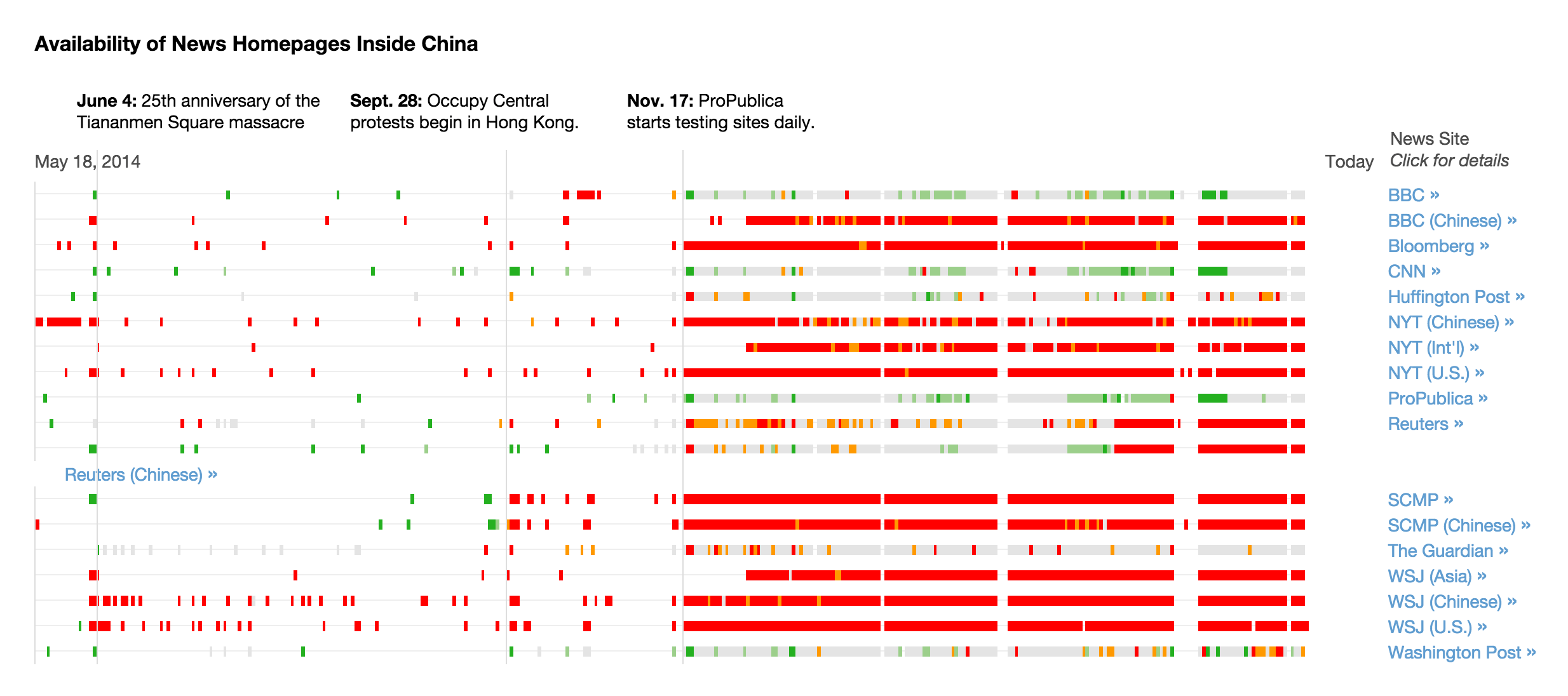Due date: Friday, May 22
This page contains information about the final project and the memo I want you to write as the first part of the project.
Deliverables
Due date: Friday, May 22. The final project will be due on finals week (there is no final exam).
Create a folder in your compjour-hw repo named: final-project.
For this assignment, create a file named: memo.md
Final project guidelines
For the final project, I want you to find and research an existing public data problem, and do something better. Not necessarily bigger, but more considered. The general archetype is to collect from some data dump/listing and then create a more filtered, purposeful view of a topic.
Consider this project equal amount of research, design, and coding; take some time to look over existing websites and datasets, try to use them as a consumer. Then think about what make the existing sites clunky/difficult to use, and think about one core feature or service that you could extract and focus on.
It must be public-facing
(i.e. on the web and linkable, not in some zip folder you email me)
Deals with a public issue
Uses public data
You can work with a partner
The CongressEdits project is such an example, taking the massive dump of Wikipedia edits data and joining it with a list of known IP addresses.
The source of your data can be on just about any public civic topic. Check out the data topics in the Search-Script-Scrape exercises for data ideas. There's also data.gov, though making a useful filtered-subset of that is a project in itself.
Some ideas:
- Is there a better way to let people know of food and drug recalls? Either of up-to-date events, or past history?
- Or car recalls? Here's the search page. Here's the raw data.
Big examples in the wild: These are professional projects that are probably beyond our scope, but are examples of news apps
Inside the Firewall: Tracking the News That China Blocks - a nice example of an app that piggybacks off of an ongoing large data effort (Greatfire.org) and filtering for a subset (just news sites).

Politwoops - deleted tweets
previously, on arrested development - not really a civic app, but a great example of manual data gathering.
HealthSherpa - a startup born from the disastrous Healthcare.gov launch. Here's the data they used.
Memo guidelines
Hypothetical examples here:
- I Heart NY Museums (this is obviously not the subject focus we care about) (the memo on Github)
- Dollars for Docs (the memo on Github)
You must have these subsections in your memo:
(feel free to add URLs/images as needed)
Quick pitch
A description of your project, in 140-characters or less.
The old way
Whatever need your project fulfills, something else has fulfilled it in some way before, albeit poorly. Describe in a step-by-step list what people have to do now to get the information/insight/etc that your project purports to deliver.
The new way
Now describe, step by step, how people will use your project to find information/insights in a (hopefully) more expedited/streamlined fashion.
Where does the data come from? How is it collected?
Where does the data for your project come from (i.e. the government, an agency, a company, your head)? How are you collecting it?
What data-cleaning/processing needs to be done?
You're presumably turning that data into something more visible/usable. Describe what kind of things you're doing to the raw data (i.e. sorting it, cleaning it up, adding it with other data, such as geocoding data from Google).
How will the data be stored?
If you're collecting/processing the data, are you storing it somewhere on disk, such as a text file or database? What data format are you using? Or type of database?
Who else has done it and how is your attempt better?
Have other people tried to do what you've done? How is your attempt better?
Pre-mortem
Read this article about pre-mortems. Basically, pretend it's the day after the due date and your project didn't live up to expectations. List the reasons why that is, i.e., anticipate the difficult parts of your project.